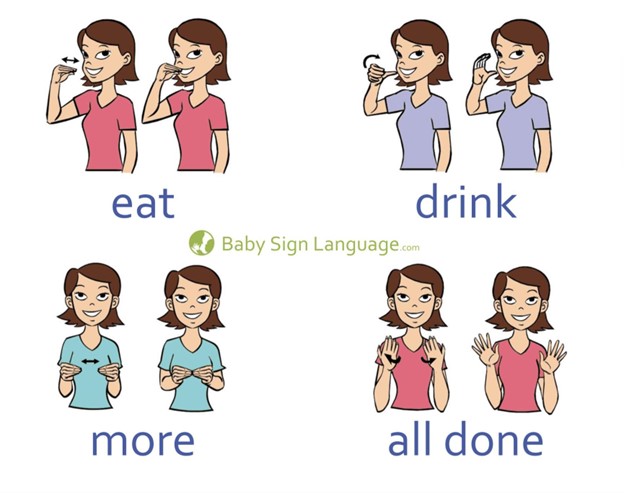Baby sign language or “baby sign” is a common tool which is used in speech therapy services to give children an alternative way to communicate when they are not yet speaking, but still have a strong desire to relay wants and needs. A child’s receptive language, which is their ability to comprehend language, develops earlier than their ability to express themselves verbally. Baby sign can assist children with general language delays, delayed language development associated with autism, etc. to communicate as their expressive language skills continue to develop. Although baby sign is typically introduced in speech therapy for kids and toddlers, it can certainly be utilized at home or anywhere outside of the therapy session.
Baby sign can:
● Accelerate and aid in early communication
● Reduce a child’s frustration
● Create a closer bond between the child and their communication partners
● Foster early language
● Increase self confidence
Some common myths about baby sign include:
1. Sign language will delay speech
a. It is a common misconception that sign language replaces verbal communication. This is false because models of verbal speech should always accompany signs when teaching them to the child. Sign language exposes babies to more speech while allowing them to communicate as their expressive language skills develop.
2. Baby sign language will confuse a child
a. At the beginning of teaching children signs, they may not understand the meaning of them. However, with repetitive modeling paired with verbal speech a child will learn to associate the sign with its meaning.
Just as children learn how to speak, they can learn functional signs to facilitate communication and express their wants and needs as early as possible. Below are a few baby signs to use with your children that are common starting points in speech therapy.


